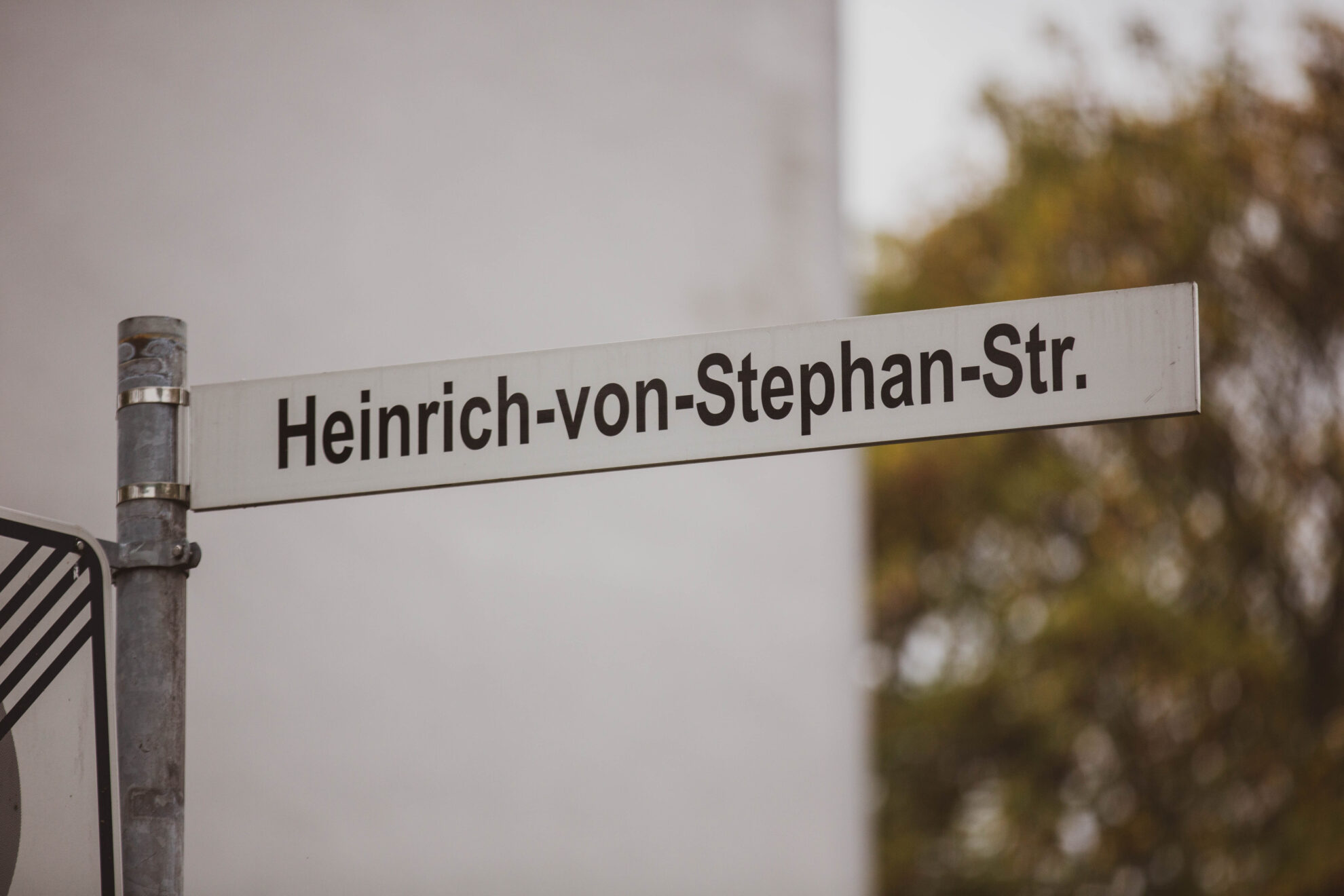By Oliver Simons, June 2006 (freiburg-postkolonial.de); abridged by Jonas Linnebank.
Heinrich-von-Stephan-Street bears a name with special significance. Postmaster General Stephan (1831-1897) knew all about local regulations and his time in office was groundbreaking for the fate of the German Reich. Under his leadership, Deutsche Post was formed, he standardized letter postage, introduced the postcard as a new medium and pushed for international agreements in the Universal Postal Union. However, Stephan also wrote colonial history.
In 1859, Heinrich von Stephan wrote a monumental “History of the Prussian postal service”, focusing on the cumbersome communication routes. Since only Prussia had a state postal service, while the other neighboring German states were administered mainly by private services, complex customs regulations made exchanging messages a sometimes lengthy undertaking. As these communication routes showed, the network of German states was by no means a single entity. During the German War, Prussia made a clever move by occupying the various postal centers, seizing control of the administration, and taking all the staff under its command. With the help of the postal service, the triumphant march across the states of the German Confederation was secured.
Heinrich von Stephan was in charge of the agreement to establish the International Postal Union in 1874 between the German Empire, France and its colonies, the Commonwealth of Great Britain, the Netherlands, Spain, Greenland, Persia, and Egypt. A postal official made foreign policy because the extensive network between the states would guarantee that the messages of each country could be sent quickly by the shortest route, and the infrastructure of the postal partners would be used to achieve this. Heinrich von Stephan’s far-reaching measures were now declared to be World mail. The postal service created a new area of coverage that spanned almost the entire globe and, at the same time, ensured that the distances between letters no longer mattered. Postage was standardized, as it had been on field postcards during the war against France in 1870/71. Instead of soldiers, colonial officials, merchants, and missionaries now wrote home, but the effect remained the same: the smoother the exchange with the colonies, the closer these territories seemed to border on the German Empire, and the more reassured those who remained at home.
The German Empire was finally to embark on a journey, as the authorized stamps could now reach any point in the territory of the Universal Postal Union. The mail steamer thus became a kind of collective symbol for the departing nation. In 1890, Heinrich von Stephan pleaded in the Reichstag for national subsidies for the East Africa Line, as the lack of “transport facilities” was ultimately also a reason why “no news about Dr [Carl] Peters” (the founder of German East Africa) was forthcoming. And how else could the suppression of “rebellious chiefs” be guaranteed if not with German steamer connections?
A postman makes colonial policy
Stephan demanded national support for the steamship lines and that the steamships should no longer be built in English shipyards, as had been the case in the past, but solely by German industry. In 1890, a consortium of shipowners founded the German East Africa Line and assembled a fleet that was expanded with new steamers every year. With ship names such as “König”, “Herzog”, “Kaiser”, “Reichstag”,” General”, “Safari”, and “Peters” and flagged with the Reichspost (Imperial Mail), these steamers were the first messages to be sent to the colonies. The mail steamer became the leitmotif of German colonialism: after the state subsidized the steamer lines, the first postcards with steamer motifs soon appeared.
Translation: Sharon Treasa Yeldo

